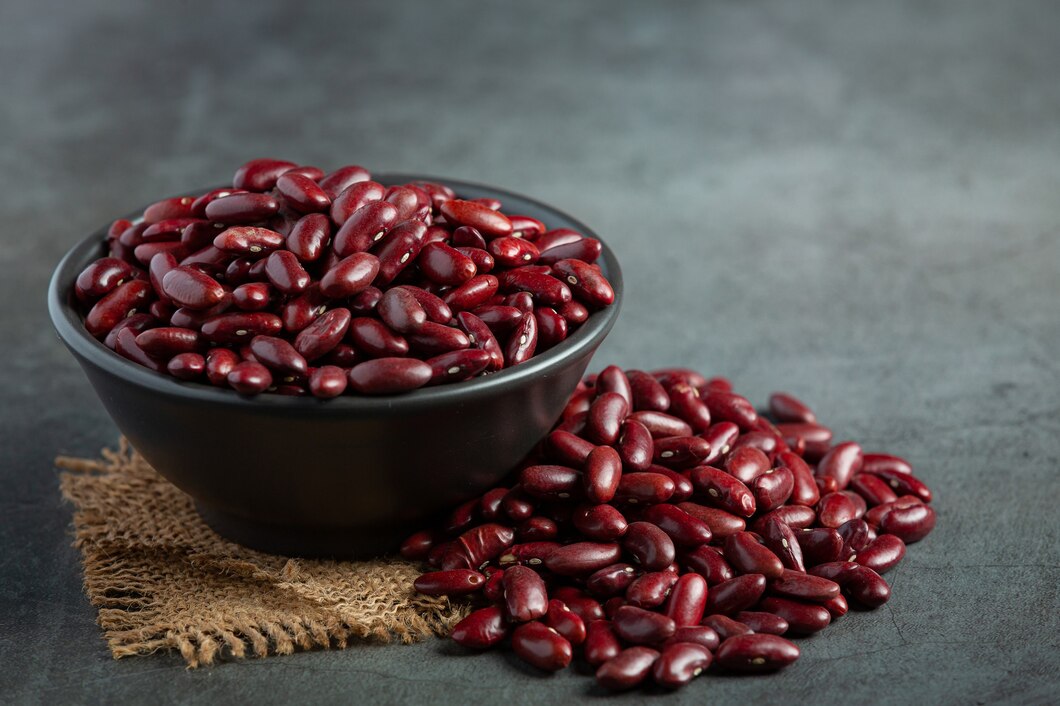While we often think of food as nourishing and safe, certain everyday foods can pose significant health risks if consumed improperly. Some contain natural toxins or are prone to contamination, turning them from healthy to harmful. For the safety-conscious shopper, it’s important to be aware of these foods to avoid potential health hazards. Here are 10 commonly found foods in markets that can be poisonous under certain conditions:
1. Cassava
Cassava, a root vegetable popular in many parts of Africa, Latin America, and Asia, contains naturally occurring cyanogenic compounds that can produce cyanide when consumed raw or improperly prepared. To avoid poisoning, cassava must be thoroughly peeled, soaked, and cooked.
2. Ackee Fruit
Native to West Africa but widely consumed in the Caribbean, ackee can be deadly if eaten before it is fully ripe. The unripe fruit contains high levels of hypoglycin, a toxin that can cause vomiting, convulsions, and in severe cases, death. Only the ripe, yellow flesh should be consumed, and the seeds must never be eaten.
3. Green Potatoes
Potatoes contain a natural toxin called solanine, which is especially concentrated in the green parts of the potato, including the skin and sprouts. Eating large amounts of green potatoes can cause nausea, headaches, and neurological problems. Always store potatoes in a cool, dark place to prevent them from turning green.
4. Red Kidney Beans
Red kidney beans are a staple in many cuisines, but they contain high levels of phytohemagglutinin, a toxin that can cause severe gastrointestinal distress if the beans are not properly cooked. Raw or undercooked beans are especially dangerous, so always soak them and cook them thoroughly before eating.
5. Rhubarb Leaves
While rhubarb stalks are a popular ingredient in desserts, the leaves contain oxalic acid, a toxic substance that can cause difficulty breathing, seizures, and kidney failure if consumed in large quantities. Only the stalks should be used, and the leaves must be discarded.
6. Elderberries
Elderberries are commonly used in jams, syrups, and health supplements, but their stems, leaves, and seeds contain cyanogenic glycosides, which can release cyanide when consumed. Only ripe, cooked elderberries are safe to eat, and the raw or unripe parts of the plant should be avoided.
7. Pufferfish (Fugu)
Pufferfish, or fugu, is considered a delicacy in Japan, but its internal organs contain tetrodotoxin, one of the most potent toxins in the world. Even a small amount can cause paralysis and death. Only licensed chefs with specialized training are allowed to prepare fugu, making it highly dangerous for the untrained.
8. Nutmeg
Nutmeg is a common spice in many kitchens, but when consumed in large amounts, it can be toxic. Nutmeg contains myristicin, a compound that can cause hallucinations, nausea, and palpitations in high doses. Stick to small amounts for seasoning to avoid these adverse effects.
9. Wild Mushrooms
Many edible mushrooms are delicious and nutritious, but some wild varieties contain deadly toxins that can lead to liver failure and death. Identifying safe mushrooms can be difficult, and even experienced foragers can make mistakes. Always buy mushrooms from trusted sources and avoid picking wild varieties unless you are certain of their safety.
10. Apricot Kernels
Apricot kernels are sometimes marketed as a health food due to their supposed cancer-fighting properties, but they contain amygdalin, which converts to cyanide when consumed. Eating too many apricot kernels can lead to cyanide poisoning, causing symptoms such as nausea, dizziness, and in extreme cases, death.
Though these foods are often available in markets and some are widely consumed, understanding the risks they pose is crucial to avoiding potential poisoning. Always handle and prepare these foods with care, follow proper cooking methods, and when in doubt, consult trusted sources for guidance on safe consumption. Staying informed is key to enjoying a safe and healthy diet.








